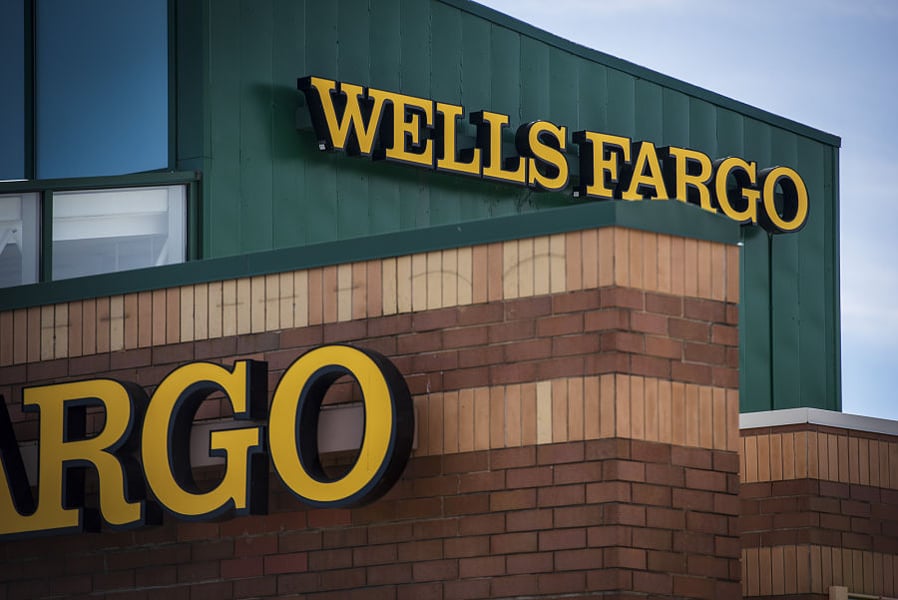

Wells Fargo & Co. fired more than 100 employees suspected of improperly collecting coronavirus relief funds, according to a person with knowledge of the situation.
The company determined that the staffers defrauded the Small Business Administration “by making false representations in applying for coronavirus relief funds for themselves,” according to an internal memo reviewed by Bloomberg. The review focused on employees who tapped the Economic Injury Disaster Loan program, a key part of the government’s effort to prop up businesses during the pandemic.
“We have terminated the employment of those individuals and will cooperate fully with law enforcement,” David Galloreese, Wells Fargo’s head of human resources, said in the memo. “These wrongful actions were personal actions, and do not involve our customers.”
While it’s possible for employees at large companies to legitimately tap U.S. aid for businesses they operate on the side, Wells Fargo’s findings add to evidence the program was widely abused -- with little sign such activity was limited to bankers. Unlike other employers, banks can check whether staff had aid deposited into their accounts. An earlier review by JPMorgan Chase & Co. found that more than 500 employees tapped the EIDL program, and that dozens did so improperly.
The SBA urged banks to look out for suspicious deposits from the program to their customers and even their own staff. While the program offers loans to businesses, much of the concern has focused on its advances of as much as $10,000 that don’t have to be repaid. A Bloomberg Businessweek analysis of SBA data in August identified at least $1.3 billion in suspicious payments.
The SBA urgently expanded the EIDL program earlier this year as shutdowns to fight the virus left small business desperate for cash lifelines. The agency’s inspector general has since flagged evidence of fraud in the program, saying it identified more than $250 million in aid given to potentially ineligible recipients as well as $45.6 million in possibly duplicate payments.
Wells Fargo “will continue to look into these matters,” Galloreese wrote. “If we identify additional wrongdoing by employees, we will take appropriate action.”
Chief Executive Charlie Scharf joined Wells Fargo last October with a mandate to clean up the firm and bolster controls after years of scandals. Earlier this year he told lawmakers he’s brought a sense of urgency that is “very different” than the bank’s past efforts to address lapses.
The bank’s memo Wednesday said that it has “zero tolerance for fraudulent behavior.” Between 100 and 125 people were terminated, the person with knowledge of the matter said, asking not to be identified discussing an internal review.
Unlike the government’s Paycheck Protection Program, in which banks served as intermediaries, EIDL funds came directly from the SBA. The agency has said it has “stringent fraud-protection safeguards” and that it had been under pressure to move the money quickly as the economic impact of the coronavirus pandemic bit into the U.S. economy.

Relationships are key to our business but advisors are often slow to engage in specific activities designed to foster them.

Whichever path you go down, act now while you're still in control.

Pro-bitcoin professionals, however, say the cryptocurrency has ushered in change.

“LPL has evolved significantly over the last decade and still wants to scale up,” says one industry executive.

Survey findings from the Nationwide Retirement Institute offers pearls of planning wisdom from 60- to 65-year-olds, as well as insights into concerns.
Streamline your outreach with Aidentified's AI-driven solutions
This season’s market volatility: Positioning for rate relief, income growth and the AI rebound
